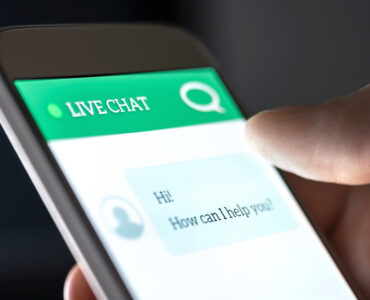by David Grunwald
The marketing people at Microsoft scored a major coup earlier this month. In a brilliant move, they managed to breathe new life into a failed product. They also spooked their main competitor into making a marketing fiasco, and unnerved their competitor’s stockholders to a point where the stock lost over 10% in value. And they did all of this without introducing a new product or upgrading the previous one. In the game of hype, it was Microsoft 1 – Google 0.
Why am I saying this is all hype? Because almost nobody has seen the new Bing yet. On this day 2.14.2023 Bing users are still seeing the old Bing. The only thing that changed is a modified interface and a teaser about how Bing can help you with your travel plans or your dinner party. The hype-masters at Microsoft want you to sign up for a waiting list in order to access the new Bing. You can sign up by clicking Chat from the Bing main menu.

If the new AI-powered Bing search engine/chatbot is so awesome-why didn’t they release it to the general public like any other product? Maybe it is not all its hyped up to be.
Which leads me to the title of this post. One thing will not change regardless of the outcome of the search engine war. People will still be searching for stuff on the Internet. Like movie reviews, food recipes, home repair services etc. etc. They will still turn to search engines to find answers. Does it matter who and what powers the search engine? If it is Page rank, Bard, ChatGPT? They will still turn to the best search engine that returns the most relevant results. And until we see the new Bing in action, until people embrace it as the best product, the search engine of choice will still remain Google.
This leads me to a few basic questions:
Will ChatGPT/Bard return more relevant search results?
(Microsoft) CEO Satya Nadella said the juiced-up search service aims to take on queries that aren’t getting relevant results on today’s search engines. People increasingly use search to get advice and information on complex topics, not just a link to a website, and the AI boost to Bing aims to make it more usable.
(CNET)
Is this statement accurate? Are people today not getting accurate search results? When someone performs a search for a commercial product or service, the search engine returns a whole bunch of links. It is up to the user to do due diligence, read online reviews, check prices and compare the different offers. And if the search results are not aligned with the user’s expectations, then they can enter a more detailed search query to refine the results.
Do people want a search engine that tells them what to do? What products to buy? How can the search engine make that decision for you? Would people even trust such a search engine?
When searching for facts or trivia, then maybe a person would want a textbook answer. But you can get that today with online resources like Encyclopedia Britanica and Wikipedia. These sources are perceived to be very accurate. Why would someone trust ChatGBP more than Encyclopedia Brittanica?
Will ChatGPT/Bard change the way people search online?
Notwithstanding the introduction of AI in search, online search is extremely evolving. According to Broadbandsearch, over 15% of daily searches on Google are new and never seen before. The new Bing is encouraging people to interfact with search engines in friendly, everyday conversational language. This trend will undoubtedly change the way people search online. But as everyone knows, Google and the other search engines use NLP (Natural Language Processing) magic to parse search queries and return results based on the running algorithms. That part is unlikely to change much in the near future.
How will ChatGPT/Bard change CPC Advertising?
Google has made fortunes by selling ads at the top of the SERPs. This is referred to as CPC (cost per click) advertising. Will Google and Microsoft insert paid ads into chatbot results?
How will all this affect SEO?
Thousands of people and companies make a living through digital marketing and SEO (Search Engine Optimization). Like in every Google algorithm update, SEOs will need to adapt and stay on top of the state-of-the art in order to remain visible in online searches. This will certainly not change.





